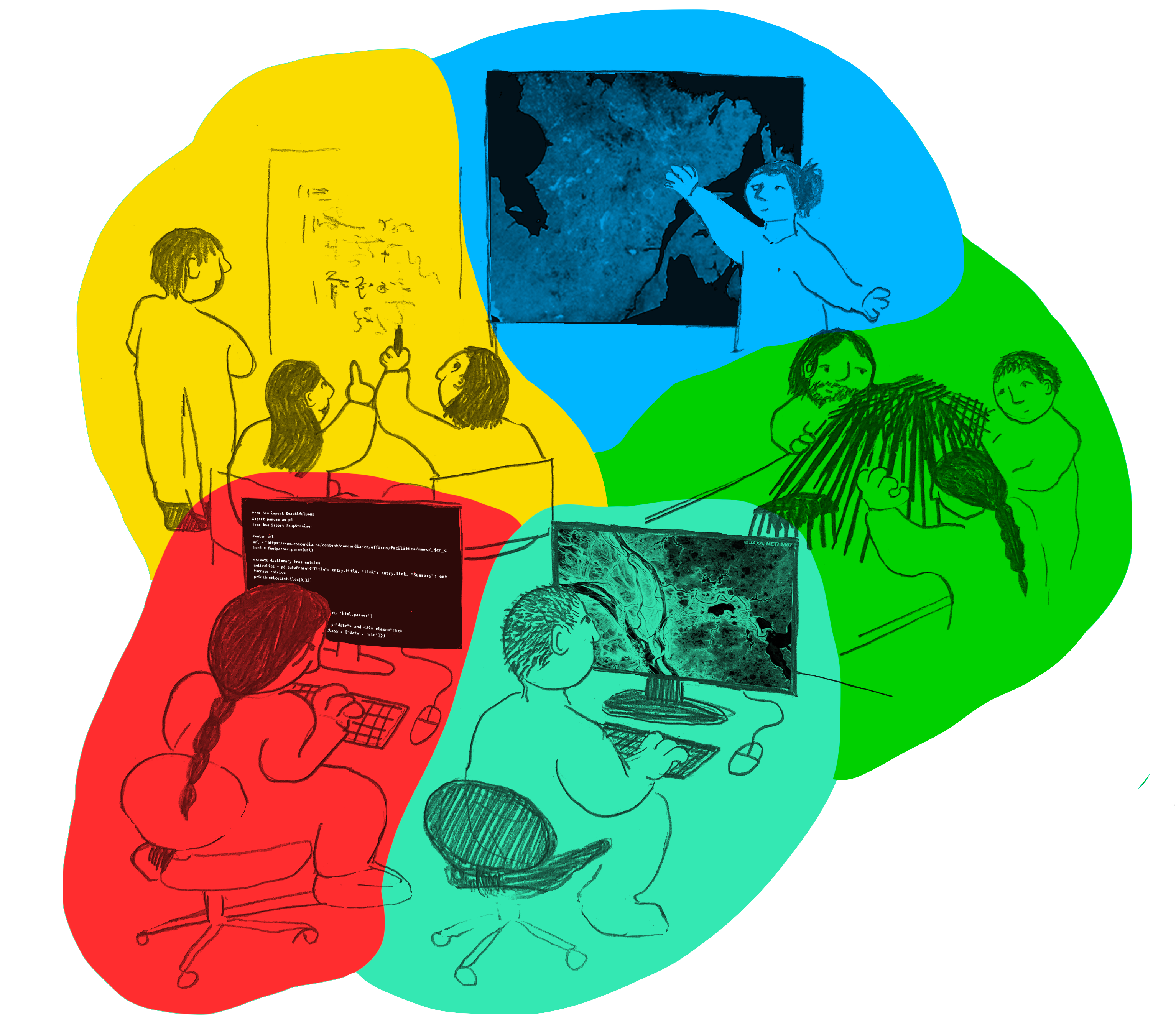As Concordia seeks to Indigenize its pedagogy, some loud voices push back on Concordia’s innovation.
On Sept. 8, 2023, Concordia announced the launch of a five-year plan to decolonize and Indigenize the university’s curriculum and pedagogy. This comes three years after the Indigenous Action Plan was first published in 2019. Since then, the action plan continues to evolve and reshape Concordia’s approach to the Indigenous community.
The five-year plan, however, has faced criticisms from an opinion piece written on Feb.12 by a known associate of Jeffery Epstein, speculating that with this plan Concordia is “a place to avoid if you’re hoping for a serious education.” Some Concordia tenured professors also bashed the plan on Twitter/X, while controversial figures such as Jordan Peterson ranted about their opinions on their social media platforms.
Donna Kahérakwas Goodleaf, director of decolonizing curriculum and pedagogy at Concordia’s Centre for Teaching and Learning (CTL) hopes that this five-year plan will make a strong impact on the next generation of students and be an example for other higher education institutions.
“I don’t want my nieces or nephews to go into higher education and still not see themselves being validated in the curriculum at a university level,” Goodleaf said.
“So we have a collective responsibility together as educators to make sure that we don’t make the mistakes that have occurred in past history with regards to the history of residential schools, for example.”
For Goodleaf, Indigenizing pedagogy means “incorporating our diverse theoretical perspectives in a respectful and meaningful way.” It also means to have faculty attempt to include the diverse Indigenous knowledge in their course outlines. Programs at the university are encouraged to come to the CTL and work with Goodleaf to reevaluate their pedagogy in order to find ways to incorporate Indigenous knowledge in it.
Some programs that are currently undergoing such revisions are engineering and communications. Both have started working with Goodleaf on the decolonization process in their respective programs.
Monika Gagnon, a full-time professor of 25 years and former chair of the communications department, said that the process has been ongoing since her time as chair in 2020. Gagnon worked with Goodleaf and the communications department to see in which courses they can incorporate indigenous views, voices, and histories in their outlines. Decolonizing the curriculum will also expose students to the truth about Canada’s history.
“I feel like we’re hearing something very different from our upcoming generations of students that are wanting to learn the truth of our own histories and relationship to indigenous colonial histories that we have,” she said.
The department took aspects from Concordia’s Action Plan as well as the Truth and Reconciliation Commision of Canada: Calls to Action, the latter’s focus being Call to Action #86, which calls upon journalism and media schools to educate students on the history of Indigenous peoples.
Sandra Gabriele, vice-provost of Innovation in Teaching & Learning, agrees with Goodleaf that disciplines should not be static in the way that they address world events. With this belief in mind, Gabriele believes that changes to the curriculum and new approaches to world views are crucial.
“What the university experience should be offering its students is this exposure to a variety of different kinds of ideas and different world views and different ways of understanding a particular problem,” she said.
With Concordia wanting to be the next-generation university, Gabriele feels that by continuing to use traditional Western views in the curriculum, students and the university as a whole won’t grow. The Indigenous Action Plan and the five-year plan continue to make consistent efforts in promoting the university’s educational growth and celebrate the Indigenous community within the university. However, there’s still work that needs to be done to ensure Concordia commits to their mission. Goodleaf and Gabriele will not allow any critics’s opinions and views to hinder their work, instead they’re focussing on the positive effects they’re bringing to the university.
“Whenever something is good, of course you’re going to experience resistance no matter what that is. The key here is to not let that keep you stuck in that, but to move above it and to move forward and be better than what’s out there,” Goodleaf said.
“Because for me this work is so important, it’s about creating a society where we can peacefully coexist with each other as humans and with the natural world. That’s the philosophy of this work. That’s the vision of why I do this work here at Concordia.”
In addition to the help and guidance offered by Goodleaf and the CTL, there are also other in-depth resources for students and faculty. Check out the links below to familiarize yourself with the Indigenous community!
Links:
Get to the Indigenous staff: https://www.concordia.ca/indigenous/about/staff.htm
Indigenous Directions: https://www.concordia.ca/indigenous/about/office.html
Ostenhàka Student Centre: https://www.concordia.ca/students/otsenhakta.html
Kaié:ri Nikawerà:ke Indigenous Bridging Program: https://www.concordia.ca/students/success/new/indigenous-bridging-program.html
Indigenous Directions Leadership Council (IDLC): https://www.concordia.ca/indigenous/about/leaders.html
Pîkiskwêtân Learning Series: https://www.concordia.ca/indigenous/resources/learning-series.html
